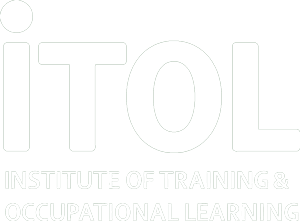I’ve been reading again Steven Covey’s Habits for Effectiveness and I was struck as to how relevant his 7th habit is, especially in our current situation.
Let me remind you. Steven Covey’s seventh habit for highly effective people identifies the need for people to spend some time on themselves. Whether it’s a break to focus on personal life or to hone our skills and knowledge, this habit should be a driving force for those of us who spend our time developing tools and programmes that develop others.
Unfortunately, the old adage is true for many of us in the L&D profession, we often end up like the cobbler’s children without shoes.
Sometimes, it’s lack of funding, often, it’s lack of time, but it is almost never a lack of will. We are and will always be lifelong learners. So, when time is of the essence, what skill areas should we be sharpening?
Here are some topics that I believe to be crucial as we try to elevate our status as cutting edge professionals who are essential for the success of our organisations.
1. Critical Thinking
Critical thinking skills focus L&D professionals not just on how to create or facilitate learning, but on why they are doing it and what it means to the learner. It is not an intuitive skill for everyone. Part of critical thinking includes the ability to theorise information and analyse, synthesise and evaluate it (sound a bit like Bloom’s Taxonomy to me!!). There is also an element of taking all of those thought processes and formulating an action or outcome.
We L&D professionals are no strangers to these concepts which perfectly places us for learning and applying this skill.
2. Strategic Thinking
A common mistake is the belief that strategic thinking and critical thinking are the same skill, but critical thinking is a tool that strategic thinkers use. Strategic thinkers consider consequences, short and long-term impacts and then make projections based on that information. It is about seeing through a curious lens beyond the job you are doing right now, with a vision of the future based on information about the past and a mindset of “what if.”
3. Data Storytelling
It may sound a strange phrase but organisations are relying more and more on data to inform whether or not learning programmes are doing the job. We need the ability to tell the story of our impact in a way that demonstrates our ability to do good work. We have to be able to use evidence based information (data) to tell meaningful stories that connect to the emotional and numerical needs of our stakeholders.
4. Performance Consulting
Talk to L&D professionals about how they do their work and what they wish they could do differently, and almost every single one will tell you they do not want to be “just an order-taker.” Fewer team members and pressure for faster turnarounds often create a culture of order-taking. Learning the skill of performance consulting will help us to move at the pace of the business, collaborate with and influence stakeholders, and identify performance gaps that present a clear path to training (if it is the right solution).
5. Project Management
L&D professionals are often required to work on multiple projects simultaneously. Learning basic project management skills can help training managers stay organised, on task and on time, which should keep their stakeholders happy.
Some ideas that come to mind when thinking about Steven Covey’s 7th habit.
I’m sure you would benefit from reading about the other six habits but I’m also sure that you don’t have time to read all 432 pages, I get it, most of us don’t!
Great news! We’ve summarised the entire book for you in just 25 pages and we’ve also added some ‘learning take-aways’ to help you get the most out of it.
If you would like to get a copy click on this link https://bit.ly/35bI12h

